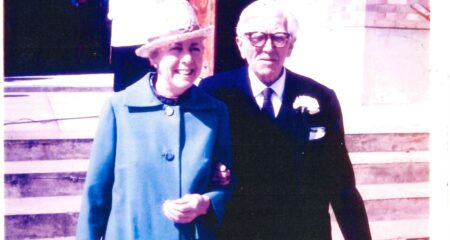This website uses cookies so that we can provide you with the best user experience possible. Cookie information is stored in your browser and performs functions such as recognising you when you return to our website and helping our team to understand which sections of the website you find most interesting and useful.

Enigma online
Henryk Zyglaski in comparison with Polish emigration in post-war Great Britain
After the Second World War many officers and soldiers who were staying abroad either did not want to or could not return to Poland. According to the Stalinist regime, they were traitors to the nation and posed a threat to the communist authorities. There was a chance that after their return they would be exiled, imprisoned or even sentenced to death. Therefore, some of them journeyed even further, to Canada, Australia and the United States. Others joined the Polish Resettlement Corps, which was a temporary organisation established in the British Army, whose goal was to prepare demobbed soldiers from Polish troops for civilian life and work, and then to relocate them all over Great Britain and abroad.
There is no information that would allow us to determine if Henryk Zygalski did plan to return to his home country. If that was the case, the letters from his friends in Poland probably stopped him from doing that. ‘Do not come back because Poland is not what we have imagined it to be’, allegedly wrote to him Marian Rejewski, who had returned to his family in Poland. In 1948, with the support of the Polish Corps, Zygalski once more became a civilian. A year later he was granted British citizenship. In 1951 he took up the position of a teacher at Battersea Polytechnic Institute, where he worked until his retirement.
Zygalski did not earn a lot of money but he led quite a comfortable life in England. He lived with Bertha Blofield, the widow of a British officer. They never married. Probably because this would mean Bertha would lose annuities she was receiving after her husband’s death. Nevertheless, nobody doubted their love. Zygalski himself referred to Bertha in his letters as his ‘wife’.
Even though Zygalski missed his country, he did not think about going back. In 1967 in a letter to his sister Monika he wrote ‘I have been almost an Englishman for 20 years now and I haven’t been to Poland since 1939. Life here is quite different from life over there. Here I have my own family, my wife and my job. There were so many reasons not to go back, even not to go there for holiday.’
Zygalski’s story stands out from the fate of other Poles in post-war Britain. While many other, even highly qualified, Poles were forced to take up jobs in shops and pubs after the war, Zygalski’s life did not differ much from the one he could have led in Poland. However, even Zygalski hit the glass ceiling several times. In order to be able to teach in an English school, he had to repeat his studies at a British university, and then, after years of working in Britain, he received a small pension, much smaller than the pension of an average Brit. Nevertheless, his life as a migrant seems to have been a good one, free from nostalgia which is so often felt. His memoirs paint a portrait of a person well integrated into life in the new country. It is evident that at the end of his life, it was the house where he lived with Bertha and where he spent most of his adulthood which he considered to be as his home.
Zuzanna Sakowska, Enigma Cipher Centre











